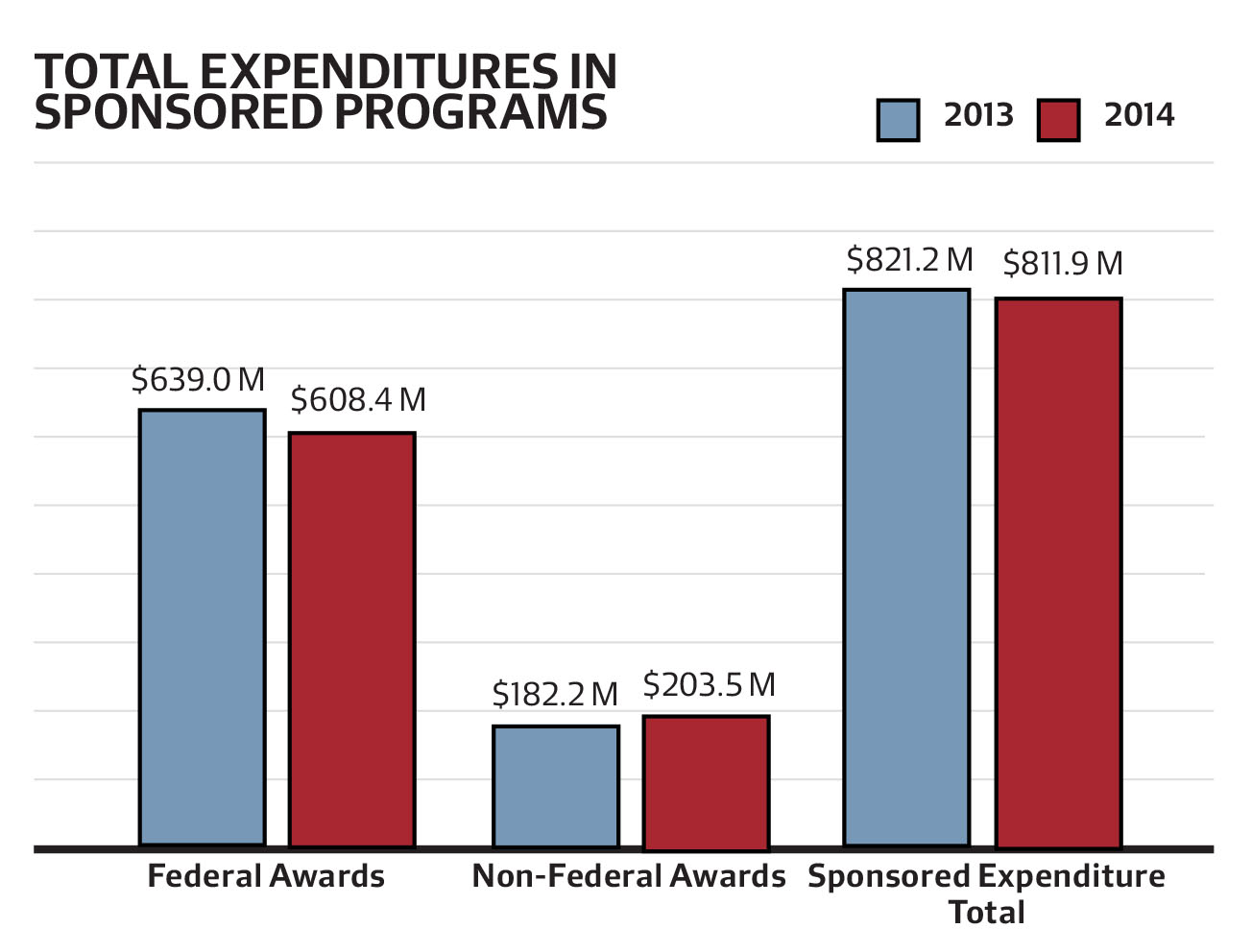The Harvard research funding crisis highlights a critical moment in the landscape of American innovation and academic inquiry. Recently, the Wyss Institute, directed by Don Ingber, faced an unsettling stop-work order after the Trump administration imposed sweeping research cuts, freezing approximately $2.2 billion earmarked for Harvard. This abrupt halt directly jeopardizes pioneering projects like organ-on-a-chip technology that are integral to advancements in medicine and space exploration. As talented researchers and their teams scramble to adapt, the implications of reduced academic research funding resonate far beyond the university’s walls, threatening the very foundation of innovation in science and technology. With vested interests in nurturing breakthroughs that drive economic growth, the outcome of this funding crisis could redefine the future of research in the United States.
The crisis enveloping Harvard’s research funding reflects a broader upheaval in the academic community, revealing tensions between federal mandates and institutional autonomy. Following drastic changes enacted by the previous administration, Harvard has found itself at a crossroads, grappling with significant cuts to essential science and technology initiatives. The halt on projects, especially those within the renowned Wyss Institute, underscores the precariousness of federal support for transformative research that fuels progress in various fields. As stakeholders, researchers, and the university administration unite to navigate this challenging landscape, the future of groundbreaking studies hinges on the resolution of funding dilemmas and the potential for renewed investment in innovations that have historically driven advancements in technology and healthcare.
The Impact of the Harvard Research Funding Crisis
The Harvard research funding crisis is a pivotal issue affecting countless projects and the future of academic innovation. With the recent actions by the Trump administration resulting in the freezing of approximately $2.2 billion in federal research funding, the landscape of research at one of the world’s leading institutions is in turmoil. Don Ingber, director of the Wyss Institute, has expressed deep concern over the implications for crucial organ-on-a-chip technology advancements. These projects are not merely scientific interests; they represent significant strides in understanding human health and developing new therapies. The halt in funding comes at a critical juncture, as researchers scramble to secure their projects and maintain their teams amid growing uncertainty about future financial support.
The ramifications of the funding crisis extend beyond immediate projects, affecting the broader ecosystem of academic research and innovation in science and technology. The ability to attract and retain top talent hangs in the balance, as prospective researchers weigh their options in a climate of instability. The psychological toll on current staff and students cannot be understated; many face uncertainty regarding their careers and the direction of their research. Ingber’s remarks highlight the urgency of addressing these challenges, as the future trajectory of scientific progress relies on sustained funding and support. Without reinstating financial resources, not just at Harvard but within the entire academic sphere, the advancements in critical fields such as organ-on-a-chip development may stall, deeply hindering progress in healthcare and technology.
Harvard Wyss Institute: A Beacon of Innovation
The Wyss Institute at Harvard University stands as a pioneer in leveraging biologically inspired engineering to solve modern challenges. Guided by Don Ingber, the institute is renowned for its organ-on-a-chip technology, which mimics human organ systems for research purposes. This innovative approach not only aids in understanding fundamental biological processes but also plays a critical role in drug development and toxicology testing. However, the recent funding freeze imposed by the Trump administration threatens to derail groundbreaking projects that could significantly advance medical science and technology.
At the heart of the Wyss Institute’s mission is the commitment to interdisciplinary collaboration, combining engineering, biology, and medicine. This fusion of disciplines fosters an environment ripe for innovation, allowing researchers to push the boundaries of what’s possible. Projects likened to those led by Ingber are not merely academic but aim to translate ideas into practical applications that solve real-world problems. The potential of organ-on-a-chip technology to model human diseases and predict drug responses exemplifies the type of innovation that could be lost if funding is not restored, underlining the essential role that institutes like Wyss play in the future of science.
Navigating Uncertainty: The Future of Research Funding
As Harvard confronts a tumultuous funding environment, navigating uncertainty has become a primary concern for academic leaders like Don Ingber. The delicate balance of keeping projects afloat while ensuring the welfare of researchers and students is no easy task amid the looming threat of layoffs. Ingber’s dedication to prioritizing the well-being of his team demonstrates the human element in the face of bureaucratic turmoil, as he actively seeks alternative funding sources to retain talent and pivotal research initiatives. This situation illustrates a microcosm of the broader challenges facing academia nationwide as adaptability and resilience become paramount.
The broader implications of academic research funding cuts extend beyond individual institutions; they threaten the very framework of innovation in science and technology. These financial constraints hinder the ability of researchers to pursue innovative projects, stifle creativity, and deter international talent from considering roles in the United States. As scholars evaluate their prospects, the exodus of talent could lead to a stagnation of progress in key scientific fields, reversing decades of advancements fueled by collaborative partnerships between government and academia. The urgent need for renewed investment in research funding is clear, as maintaining a vibrant scientific community is crucial for sustaining the nation’s competitiveness on a global scale.
Trump Administration’s Cuts and Their Consequences
The Trump administration’s drastic cuts to research funding have created a ripple effect through institutions like Harvard, challenging the trajectory of innovation and progress. By freezing approximately $2.2 billion in funding, the administration has not only impacted projects at the Harvard Wyss Institute but also revealed a contentious relationship between government priorities and academic needs. Researchers fear the long-term repercussions of these cuts, especially in critical fields such as healthcare research, where funding is essential for breakthroughs that can save lives. This tense standoff highlights a growing divide between policy-makers and the scientific community, ultimately calling into question the nation’s commitment to funding innovation.
The cuts also raise significant concerns about the future availability of talent in academia. As current researchers contemplate their roles amidst funding uncertainty, potential recruits, especially from international backgrounds, are reconsidering their decisions to engage with American institutions. The fear of instability can deter the brightest minds from applying, leading to a knowledge gap that could take years to remedy. Innovative advancements in technology depend heavily on the support of an ever-evolving workforce, and without adequate funding and a stable environment, the U.S. risks falling behind in competing globally in science and technology fields.
Organ-on-a-Chip Technology: A Transformative Approach
Organ-on-a-chip technology represents one of the most exciting advancements in biomedical research, offering the capability to replicate human organ systems on a miniature scale. At the Wyss Institute, researchers like Don Ingber are leveraging this technology to explore vital areas such as radiation damage and microgravity effects on human health. This innovative approach provides a unique platform for testing drug efficacy and safety, potentially speeding up the drug discovery process and reducing reliance on animal testing. The implications of successfully deploying this technology extend far beyond laboratory settings, promising a paradigm shift in how we approach healthcare and disease modeling.
However, the interruption in funding poses a significant threat to ongoing organ-on-a-chip projects that could change the future of medical treatments. With the potential to revolutionize personalized medicine and yield insights into complex biological interactions, its development needs steadfast support from federal and state funding sources. The halt in critical research efforts hampers the exploration of solutions for pressing medical challenges, including those posed by radiation exposure. As the scientific community advocates for the restoration of funding, it highlights the transformative nature of organ-on-a-chip research and underscores its importance to public health and safety.
The Critical Role of Academic Research in Innovation
Academic research serves as the backbone of technological advancement, enabling breakthroughs that drive economic growth and societal progress. With Harvard at the forefront, the intersection between science, technology, and academia fosters an environment where innovative ideas can flourish. The recent funding freeze by the Trump administration threatens this essential relationship, which has historically propelled America’s status as a leader in innovation. The ability of research institutions to collaborate with government and industry is crucial for nurturing the next generation of technological advancements, ensuring continued progress across various fields.
The long-standing partnership between universities like Harvard and funding bodies has led to significant scientific discoveries and the development of cutting-edge technologies. It is imperative that policymakers recognize the value of ongoing investment in academic research to sustain the momentum of innovation. As researchers navigate the current funding crisis, it highlights the urgent need for a renewed commitment to support science and technology education, research initiatives, and collaborative projects. The continuity of this partnership will ultimately shape the future of innovation, determining not only America’s competitive edge but also the well-being of its citizens.
Addressing Concerns of Researchers and Talent Retention
The uncertainty surrounding research funding has left many researchers at institutions like Harvard grappling with anxiety about their futures. Don Ingber has openly discussed the emotional toll this situation has taken on his team, emphasizing the importance of prioritizing the welfare of those involved in critical projects. Recent efforts to secure internal funding and reallocate researchers to ongoing grants showcase their commitment to retaining talent in an otherwise tumultuous environment. Support from leadership in navigating these challenges is essential, as researchers need to feel secure in their roles to focus on groundbreaking scientific work.
Moreover, addressing concerns about the safety and security of researchers, particularly those from international backgrounds, is crucial in attracting and retaining top talent. The apprehension felt by prospective scholars regarding the political climate can severely impact the diversity of ideas and perspectives that drive innovation in science and technology. Creating an inclusive and supportive atmosphere is essential for fostering a collaborative research environment that encourages creativity and exploration. Institutions must proactively communicate their commitment to diversity and security to maintain their reputation as leading centers for academic excellence.
The Future of Innovation: Call for Restoring Research Funding
In light of the current funding crisis, there is an urgent call from the academic community to restore research funding to maintain the United States’ leadership in innovation and technology. The partnership between government and academia has historically been a powerful catalyst for scientific discovery and technological advancement. As alarming cuts threaten the continuity of critical research initiatives at institutions like Harvard, leaders in academia are advocating for a reconsideration of funding policies that undermine foundational research. Without immediate action to reinstate these resources, America risks losing its competitive edge in the global landscape of science and technology.
The consensus among researchers is clear: sustained investment in academic research is essential for nurturing ideas that evolve into transformative technologies. As projects are currently put on hold and funding remains uncertain, the future of innovation hinges on the decisions made today. Advocating for robust funding mechanisms and collaborative efforts between industry, government, and academia is crucial for ensuring that the engine of innovation continues to thrive. The consequences of neglecting research funding extend beyond immediate projects; they have lasting implications for the future of our economy and the well-being of society. Protecting and reinvigorating this vital resource will benefit not only researchers but the entire nation.
Frequently Asked Questions
What is the Harvard research funding crisis and how does it relate to the Trump administration research cuts?
The Harvard research funding crisis refers to a significant freeze on research funding affecting Harvard University, precipitated by the Trump administration’s demands and subsequent cuts in federal research budgets, including approximately $2.2 billion in funding. This has directly impacted many projects, especially critical initiatives like those at the Harvard Wyss Institute, causing disruptions and uncertainty for researchers.
How do the Trump administration research cuts impact projects at the Harvard Wyss Institute?
The Trump administration research cuts have severely affected projects at the Harvard Wyss Institute, particularly those utilizing organ-on-a-chip technology. Researchers like Don Ingber faced immediate stop-work orders on multiple projects, halting crucial research that addresses public health and space exploration challenges, and jeopardizing over $19 million in government contracts.
What role does organ-on-a-chip technology play in Harvard’s research strategy amidst the funding crisis?
Organ-on-a-chip technology is pivotal in Harvard’s research strategy during the funding crisis, as it enables the modeling of complex human biological systems. This technology is instrumental in projects addressing radiation exposure effects on health and simulating how microgravity impacts astronaut health, thus demonstrating the importance of continued funding to advance science and technology innovations.
What are the potential long-term effects of the Harvard research funding crisis on academic research funding?
The Harvard research funding crisis may have long-term repercussions on academic research funding as it highlights vulnerabilities in the relationship between federal funding and university projects. A reduction in funding can deter talent from entering academia, stifle innovation, and hinder breakthroughs in science and technology, ultimately impacting the U.S. competitive edge in global research.
How is Harvard addressing the challenges posed by the research funding crisis?
Harvard is addressing the challenges posed by the research funding crisis by filing lawsuits to challenge the legality of the funding cuts, reallocating internal resources to sustain key research projects, and prioritizing the welfare of faculty and staff involved in affected projects. The university is also seeking alternative funding sources to mitigate the impact of ongoing federal cuts.
What implications can the Harvard research funding crisis have on the innovation in science and technology in the U.S.?
The Harvard research funding crisis could severely impede innovation in science and technology in the U.S. by limiting access to essential funding for groundbreaking research. As seen with the work at the Harvard Wyss Institute, disruptions in funding threaten to stall advancements that are vital for public health and technological progress, ultimately jeopardizing America’s leadership in research and development.
How has the research funding crisis influenced international collaboration in science at Harvard?
The research funding crisis has negatively impacted international collaboration at Harvard, as uncertainty surrounding U.S. immigration policies and funding cuts deter international scholars from pursuing opportunities at the university. This situation threatens to downgrade the scientific community’s diversity and diminish collaborative efforts that have historically driven significant advancements in research.
What steps is Harvard taking to support researchers during the funding crisis?
During the funding crisis, Harvard is actively working to support its researchers by seeking alternative funding avenues, reallocating staff to other projects where possible, and emphasizing internal support systems to retain talent. Additionally, university leadership is engaged in continuous dialogue with affected researchers to address their concerns and provide reassurance amid the funding uncertainty.
| Key Points | Details |
|---|---|
| Stop-work Order Issued | Harvard researchers received a stop-work order affecting $19 million in projects, following the freezing of $2.2 billion in research funding by the Trump administration. |
| Lawsuit Filed | Harvard filed a lawsuit against the government, claiming the demands are unconstitutional and seeking restoration of funding. |
| Impact on Researchers | Researchers are in a damage assessment phase, struggling to keep projects moving and maintain staff employment amid uncertainty. |
| Critical Research Areas | Research focuses on radiation damage assessment and microgravity effects on astronauts, emphasizing the importance of continued funding for public health and space exploration. |
| Concerns Over Talent Retention | There is a growing concern about losing talented researchers to other countries, with potential ramifications on America’s innovation ecosystem. |
| Need for Government-Academia Partnership | The situation highlights the critical need for continued collaboration between government and academic institutions to drive innovation and technology development. |
Summary
The Harvard research funding crisis has brought urgent attention to the challenges facing academic research institutions. Following the Trump administration’s decision to freeze billions in funding, many researchers have found their projects on hold, leading to uncertainty and potential loss of talent. The situation underscores the importance of a robust partnership between the government and academia to sustain innovation and public health initiatives. As Harvard pushes back against the funding cuts through legal action, it emphasizes that the outcomes of this crisis will not only affect the immediate stakeholders but will have lasting consequences on America’s position as a leader in scientific advancement.



